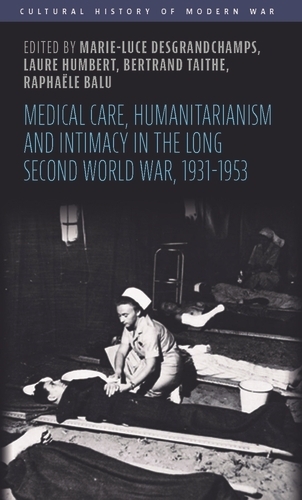
Medical Care, Humanitarianism and Intimacy in the Long Second World War, 1931-1953
(Hardback)
Publishing Details
Medical Care, Humanitarianism and Intimacy in the Long Second World War, 1931-1953
By (Author) Marie-Luce Desgrandchamps
Edited by Laure Humbert
Edited by Bertrand Taithe
Edited by Raphale Balu
Manchester University Press
Manchester University Press
5th November 2025
United Kingdom
Classifications
Tertiary Education
Non Fiction
Diplomacy
History of medicine
Second World War
General and world history
940.5475
Physical Properties
Hardback
298
Width 138mm, Height 216mm, Spine 17mm
493g
Description
This book offers a micro-global history of humanitarianism and medical care during the 'long' Second World War, which challenges the traditional and Eurocentric chronological boundaries of 1939/1945. It takes as its starting point the Japanese invasion of Manchuria in 1931, which led to the progressive dislocation of the League of Nations, with the Japanese, German and Soviet departures in the 1930s. It ends with the termination of the Korean War in 1953, and the subsequent dismantlement of the first United Coalition and UN Peace enforcement operation. It considers the slow, messy and ambivalent transformation of humanitarian actors' relations to the suffering of distant others through a study of humanitarian encounters, practices, spaces and affects. Paying close attention to a variety of actors, such as French colonial doctors, Swiss ICRC delegates, Egyptian relief workers, Chinese-style physicians, Peruvian and Ecuadorian nurses or American member of the Unitarian Service Committee, the book provides a more holistic story of humanitarianism.
Author Bio
Raphaele Balu, Postdoctoral Fellow at Sorbonne University
Marie-Luce Desgrandchamps, Lecturer at the Universite of Geneva
Laure Humbert, Senior Lecturer at the University of Manchester
Bertrand Taithe, Professor of Cultural History at the University of Manchester
